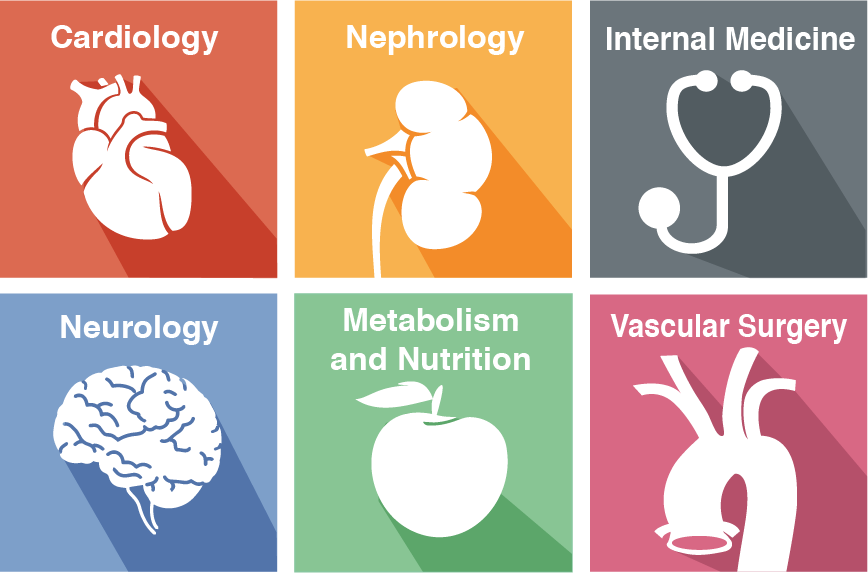جزء خاص بالتواصل الرسمي بين مسجل كلية الطب و الطلاب
Medical Faculty Education Portal - University of Benghazi
Skip available courses


Available courses
- Teacher: nadia darogi
- Teacher: samira elnaili
- Teacher: khadija elshreef
- Teacher: Fares Younis

Physiology Course Description
The Physiology course is one of the basic requirements of human medicine program. It is taught
in first and second years. The number of study hours is 213 hours. The course aim to : provide
our students with a thorough understanding of the basic principles of Medical Physiology.
Enable them to integrate what they have learned about body structure, biochemistry, and
physiology into a meaningful body of biomedical knowledge. Provide insights into the
pathophysiologic mechanisms of disease, thereby giving our students a solid foundation for their
future medical training and clinical practice.
Learning Outcomes
Knowledge and understanding:
1. Describe the basic physiological concepts of homeostasis.
2. Discuss the functions of the different body organ system
3. Explain how the functions of the different body organ systems are controlled.
Intellectual skills
1. Illustrate the integration of the functions of the different body organ systems in
maintaining homeostasis
2. Depict the Patho-physiological consequences of dysfunctions of the different body organ
systems
Practical skills
1. Behave professionally including attendance, punctuality, and preparedness.
2. Able to interact effectively with their classmates.
3. Recognize and effectively deal with unethical behavior of their classmates if encountered.
General and transferable skills
1. Use verbal language effectively.
2. Use effective listening skill
3. Facilitate the learning of other students, including giving effective feedback.
4. Communicate essential information effectively within their classmates.
Teaching and learning methods:
1. Lectures
2. Practical sessions
Method of Evaluation:
1. MCQs and short essay
2. Oral exam
3. practical exam
References:
1. Guyton and Hall textbook of medical physiology 13th edition.
2. William .F. Ganong, textbook of medical physiology 23th edition
The Physiology course is one of the basic requirements of human medicine program. It is taught
in first and second years. The number of study hours is 213 hours. The course aim to : provide
our students with a thorough understanding of the basic principles of Medical Physiology.
Enable them to integrate what they have learned about body structure, biochemistry, and
physiology into a meaningful body of biomedical knowledge. Provide insights into the
pathophysiologic mechanisms of disease, thereby giving our students a solid foundation for their
future medical training and clinical practice.
Learning Outcomes
Knowledge and understanding:
1. Describe the basic physiological concepts of homeostasis.
2. Discuss the functions of the different body organ system
3. Explain how the functions of the different body organ systems are controlled.
Intellectual skills
1. Illustrate the integration of the functions of the different body organ systems in
maintaining homeostasis
2. Depict the Patho-physiological consequences of dysfunctions of the different body organ
systems
Practical skills
1. Behave professionally including attendance, punctuality, and preparedness.
2. Able to interact effectively with their classmates.
3. Recognize and effectively deal with unethical behavior of their classmates if encountered.
General and transferable skills
1. Use verbal language effectively.
2. Use effective listening skill
3. Facilitate the learning of other students, including giving effective feedback.
4. Communicate essential information effectively within their classmates.
Teaching and learning methods:
1. Lectures
2. Practical sessions
Method of Evaluation:
1. MCQs and short essay
2. Oral exam
3. practical exam
References:
1. Guyton and Hall textbook of medical physiology 13th edition.
2. William .F. Ganong, textbook of medical physiology 23th edition
- Teacher: samira elnaili
- Teacher: fatimah bobaker

Histology is study of microscopic structure of various cells, tissues and organs of the human body
- Teacher: amal arhoma
- Teacher: samira elnaili

Histology is study of microscopic structure of various cells, tissues and organs and systems of the human body
- Teacher: amal arhoma
- Teacher: fatimah bobaker
- Teacher: nawara elammari
- Teacher: ghada abas
- Teacher: sara glessa
- Teacher: huda gargoum
- Teacher: nadya gweref
- Teacher: nadia darogi
- Teacher: أ.د.فاطمة بن خيال
- Teacher: mariam gebril
- Teacher: abdulhamid elorfi
- Teacher: khadija elshreef
